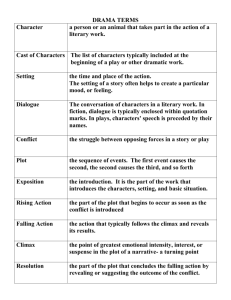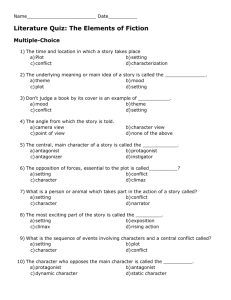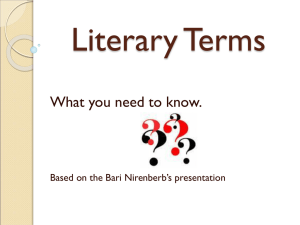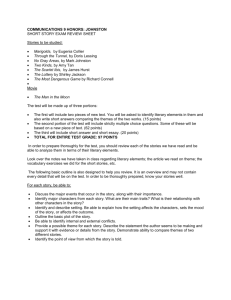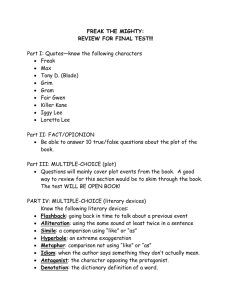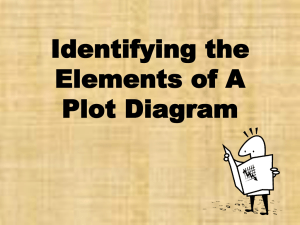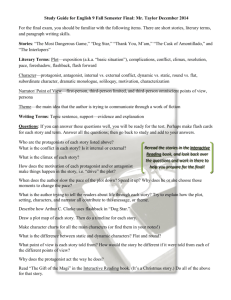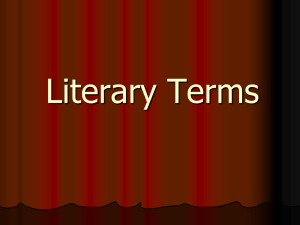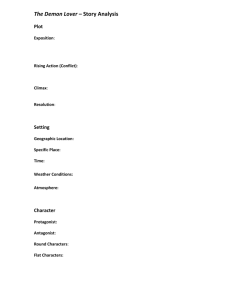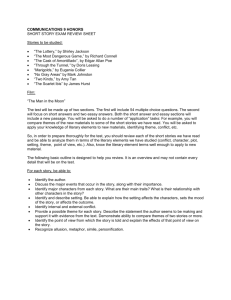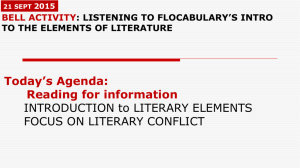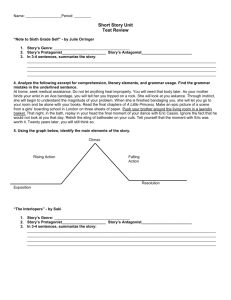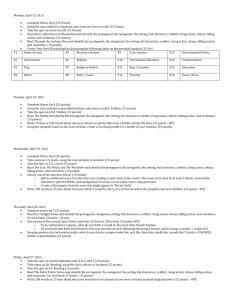Summer Reading Assignments Glossary of Literary Terms
advertisement
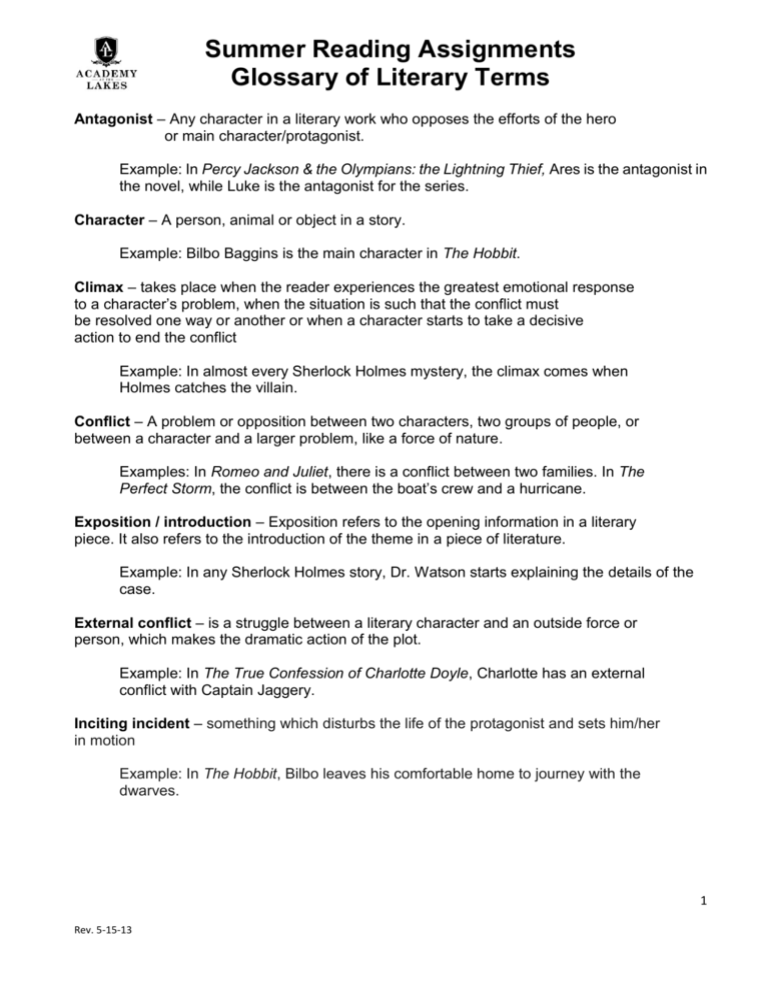
Summer Reading Assignments Glossary of Literary Terms Antagonist – Any character in a literary work who opposes the efforts of the hero or main character/protagonist. Example: In Percy Jackson & the Olympians: the Lightning Thief, Ares is the antagonist in the novel, while Luke is the antagonist for the series. Character – A person, animal or object in a story. Example: Bilbo Baggins is the main character in The Hobbit. Climax – takes place when the reader experiences the greatest emotional response to a character’s problem, when the situation is such that the conflict must be resolved one way or another or when a character starts to take a decisive action to end the conflict Example: In almost every Sherlock Holmes mystery, the climax comes when Holmes catches the villain. Conflict – A problem or opposition between two characters, two groups of people, or between a character and a larger problem, like a force of nature. Examples: In Romeo and Juliet, there is a conflict between two families. In The Perfect Storm, the conflict is between the boat’s crew and a hurricane. Exposition / introduction – Exposition refers to the opening information in a literary piece. It also refers to the introduction of the theme in a piece of literature. Example: In any Sherlock Holmes story, Dr. Watson starts explaining the details of the case. External conflict – is a struggle between a literary character and an outside force or person, which makes the dramatic action of the plot. Example: In The True Confession of Charlotte Doyle, Charlotte has an external conflict with Captain Jaggery. Inciting incident – something which disturbs the life of the protagonist and sets him/her in motion Example: In The Hobbit, Bilbo leaves his comfortable home to journey with the dwarves. 1 Rev. 5-15-13 Summer Reading Assignments Glossary of Literary Terms Internal conflict – is a mental struggle in the mind of a character, usually the protagonist. Example: Hamlet is indecisive and self-doubting, which keeps him from avenging his father's murder. Plot – A series of related events that present and resolve a conflict in a story. Example: Odysseus getting home is the basic plot to The Odyssey. Point of View – The narrator’s position in relation to the story being told is the point of view. Some stories can have many points of view in the narrative, as different characters feature in the story. Example: In The Hunt for Red October, the point of view switches from CIA agent Jack Ryan to that of the submarine captain Marko Ramius. Protagonist – The central or main character in a literary work. Example: Meg Murray is the protagonist in A Wrinkle in Time. Resolution – The portion of the story where the conflict or problem is resolved. It does not always mean a happy ending. Example: In The Lord of the Rings, the ring is destroyed, Aragorn becomes king, and the hobbits return to their homes. Rising Action – The part of the story or drama that begins with the exposition and sets the stage for the climax of the story. It takes its name from the tension that is always rising in this part of the story. Example: In Jurassic Park, the raptors chasing the children is one of the rising actions. Setting – The total environment for the action of a fictional work. This includes the time period, the place, and the historical period. Example: The original Sherlock Holmes stories are set in London, England, from 1886 to 1896. Theme – the subject or purpose of a piece of writing. Example: In the Hunger Games, one of the themes is about resisting the abuse of governing powers the Capitol, or state, represents. 2 Rev. 5-15-13
